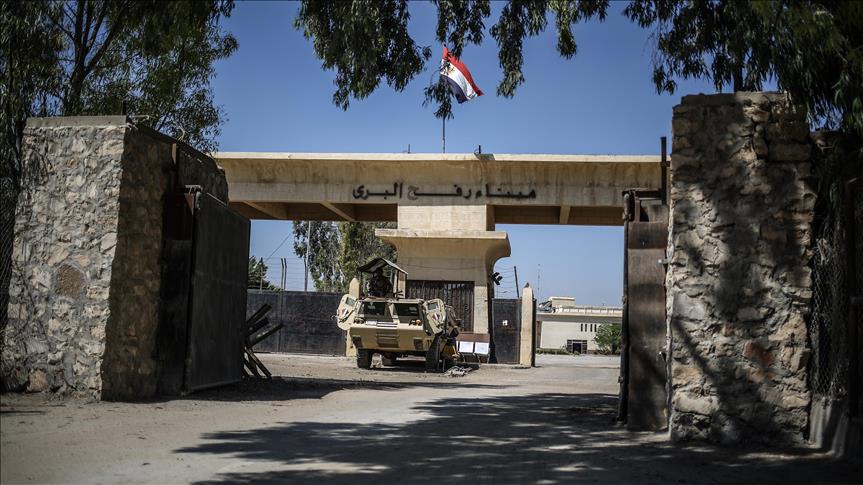
Former US president, Jimmy Carter, announced on Friday that current US President Donald Trump’s “deal of the century” breaches international law, CNN and other international agencies reported.
According to Carter, Trump’s deal “breaches international law regarding self-determination, the acquisition of land by force, and annexation of occupied territories.”
In a statement issued by his office, Carter also affirmed: “The new US plan undercuts prospects for a just peace between Israelis and Palestinians. If implemented, the plan will doom the only viable solution to this long-running conflict, the two-state solution.”
Therefore, he urged UN member-states “to adhere to UN Security Council resolutions and to reject any unilateral Israeli implementation of the proposal by grabbing more Palestinian land.”
He argued: “By calling Israel ‘the nation-state of the Jewish people’, the plan also encourages the denial of equal rights to the Palestinian citizens of Israel.”
Trump’s plan recognises Israeli sovereignty over most of the Israeli settlements in the occupied West Bank and the Jordan Valley, as well as an undivided Jerusalem.
Carter, 95, is the longest-living president in US history, has frequently spoken out since losing re-election in 1980, and has won the Nobel Peace Prize for his humanitarian work.
In recent years, he has frequently faced criticism from pro-Israel supporters for his views on the conflict, especially for his use of the word “apartheid” to describe Israel’s potential future without a peace deal.
Palestine cancels 1995 Oslo Accords signed with Israel
Palestine on Thursday cancelled the 1995 Oslo Accords signed with Israel, Anadolu Agency reported.
“Israel has been informed that the Palestinian administration will not adhere to the agreements between them,” the Palestinian Authority’s Minister of Civil Affairs Hussein al-Sheikh said in a televised interview with Al-Jazeera.
Sheikh also expressed hope that Arab and Islamic countries will be a force that supports the Palestinian attitude.
At the request of Palestine, the Arab League will hold an extraordinary meeting at the ministerial level on February 1 to discuss the so-called peace plan.
On Tuesday, US President Donald Trump released his much-hyped plan to end the Israeli-Palestinian dispute during a press conference at the White House with Israeli Prime Minister Benjamin Netanyahu by his side.
There was, however, no Palestinian representative at the announcement, which saw Trump referring to Jerusalem as “Israel’s undivided capital”.
Trump’s so-called peace plan unilaterally annuls previous UN resolutions on the Palestinian issue and has drawn criticism for giving Israel almost everything it demanded.
Under the 1995 Oslo Accords between Israel and the Palestinian Authority, the West Bank, including East Jerusalem, was divided into three portions – Area A, B and C.
Israel prevents Palestinians from conducting construction projects in parts of the West Bank designated as Area C under the agreement, which falls under administrative and security control of Israel.
Area C is currently home to 300,000 Palestinians, the vast majority of whom are Bedouins and herding communities who predominantly live in tents, caravans and caves.
International law views the West Bank and East Jerusalem as “occupied territories” and considers all Jewish settlement-building activity there illegal.
What is this ‘deal’?
It takes no great analysis to know that the Palestinian leadership rejects the “deal of the century” which the US leadership has already revealed to Israel’s Prime Minister Benjamin Netanyahu and opposition leader Benny Gantz. Accepting the deal would be tantamount to committing political suicide for the Palestinian leadership and, indeed, any Arab regime; nobody will dare to sign a deal that gives up Jerusalem.
The US deal is also unlikely to recognize any part of the occupied West Bank as Palestinian land, because to do so would counter the Zionist narrative about the conflict which insists that it is “Judea and Samaria” and the land of the ancestors of modern Jewry.
The so-called deal as published by a newspaper close to Netanyahu, who undoubtedly arranged this with US President Donald Trump’s son-in-law, Jared Kushner, gives the Palestinians an entity in which they can live in areas A, B and part of C according to the Oslo classification. The occupied Jordan Valley and illegal settlements will remain under Zionist control, amounting to 60 per cent of the West Bank. Thus, “Palestine” would consist of isolated cantons, surrounded by barriers and side roads, with neither weapons to defend itself nor sovereignty.
Such an entity will not be viable by any reasonable interpretation of the term. An option would be a move to Jordan, which would involve approving the alternative homeland scheme, whether smoothly or by linking the Palestinian population to Jordan. Leaks about the reconsideration of Jordan’s 1988 disengagement decision are a prelude to this step, although they are being denied officially.
The issue of refugees is only being discussed in terms of compensation, which is supposed to be paid by Arab countries after clearing what is known about the value of Jewish-owned properties in Arab states before the owners left to go to Israel. No doubt the value will be estimated by the Zionists to be double the compensation due to Palestinian refugees.
None of this will be accepted by the Palestinian leadership, which will probably issue the usual threats about stopping security coordination with Israel or dissolving the Palestinian Authority, neither of which it will dare to follow through. There will also be Arab condemnation, but there will be no change in the situation of the PA which works to serve the occupation. And nothing will change in the official Arab normalisation of relations with the occupation state. That movement is growing, while the plan is to transform what is temporary into permanent fixtures.
The Palestinian rejection of the deal will be used as an excuse to go ahead and annex the Jordan Valley, and possibly the West Bank soon after. Nevertheless, the outcome from the Arab side will be the same: denunciation, condemnation, silence and the ongoing normalisation process.
In fact, nothing in the positions of the PA and important local regimes which cooperate with the Americans and the Israelis will change. And unless an overwhelming intifada erupts, the regional arrangements aimed at making temporary changes permanent will go according to plan.
If the Palestinians do not impose their position on the leadership of Fatah, whether Abbas is there or not, then we’ll have to wait for regional and international changes that allow the outbreak of an intifada to bring Palestinians back on track, after having lost their direction because of their current leadership. The official Arab direction has also been lost and is experiencing unprecedented deterioration, where it is focused on closing down the people’s longing for the Arab Spring and political Islam.
It also has as a priority in its undeclared conflict with Turkey and Qatar, and to a lesser extent with Iran. When it comes to Iran, though, Arabs think that it is enough to incite the US against Tehran. They understand that the game that Washington is playing to bring Iran to its knees has nothing to do with its aggression against its Arab neighbours, or its plans for sectarian expansion. It is, rather, because of its position on the Palestinian cause, even though it has met with leading counter-revolution regimes and provided the Zionists with solemn service.
As such, there is no other option for the Arab masses with a conscience except to confront all regional arrangements that are intended to end the Palestinian cause, including normalisation of relations with the Zionist state. The people must pressure the Arab regimes and the PA by all available means, and declare that resistance to the occupation is the one and only option to face the Zionist plans to liquidate the Palestinian cause and dominate the region.



